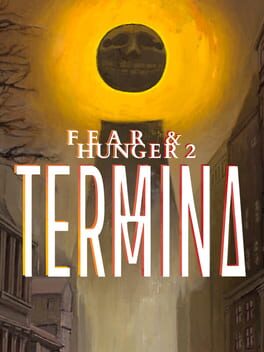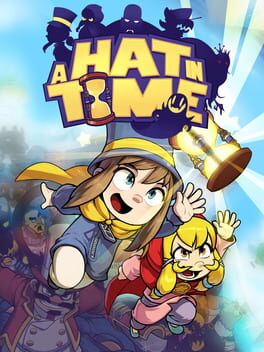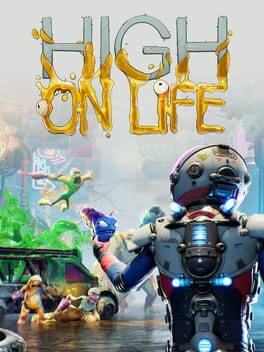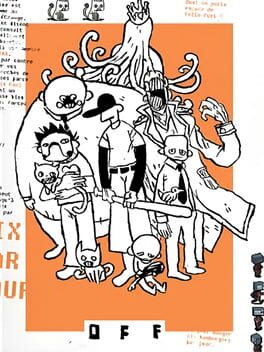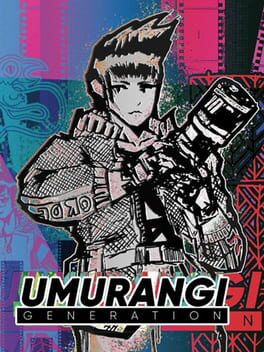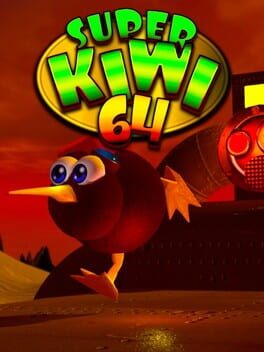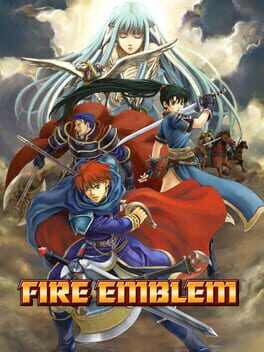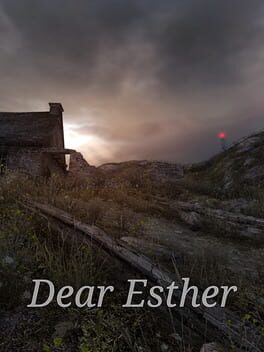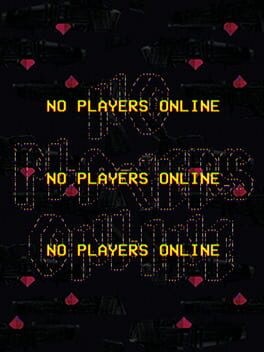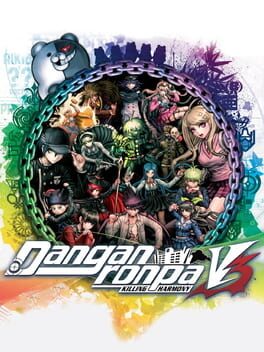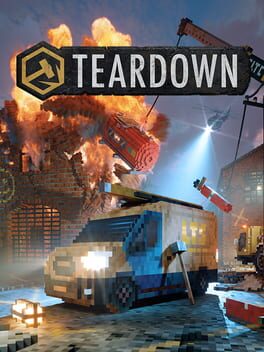Goffers
31 Reviews liked by Goffers
Sometimes you stumble across games and they really surprise you! Fear and Hunger Termina is a hybrid Survival Horror/RPG with great emphasis on the former. The game is all about resource management, and makes no bones about your first playthroughs falling into guaranteed failure states. Learning the game is a blast though and once you get the hang of things it's very exciting to see the various approaches you can take for every situation in the game. With 8 playable characters with a host of different skills between them, along with 3 endings that have fairly different requirements for reaching them, the game has excellent replay value too! The atmosphere is rich and there are a host of spooks and thrills to keep you on edge most of the way. Particularly note goes to the sound effects and dissonant soundtrack.
On the downsides, as you'd expect of an open world game made by one person, the game is RIFE with bugs, particularly for recruitable characters who are notorious for breaking horribly and just disappearing from the game altogether. It's unlikely you'll complete a playthrough without seeing at least one bug. While I don't consider this a negative, the game is also big on disturbing content and imagery, from drug based to sexual to of course violent. If these things are a bit much for you to stomach, I wouldn't really recommend this game. Lastly, and once again I don't consider this a downside but some might, the game is VERY punishing. Enemies outclass you immensely, so you really need to know what options you have to declaw them for the inevitable encounters you WILL have to fight. Plus, the game has extremely limited save opportunities, so you can see a lot of progress go up in smoke if you aren't cautious. If that doesn't sound like a fun time to you, you'll probably want to pass on this.
All said, if you're a fan of the the horror genre and resource management games, I'd highly recommend this, I had a blast getting through it.
On the downsides, as you'd expect of an open world game made by one person, the game is RIFE with bugs, particularly for recruitable characters who are notorious for breaking horribly and just disappearing from the game altogether. It's unlikely you'll complete a playthrough without seeing at least one bug. While I don't consider this a negative, the game is also big on disturbing content and imagery, from drug based to sexual to of course violent. If these things are a bit much for you to stomach, I wouldn't really recommend this game. Lastly, and once again I don't consider this a downside but some might, the game is VERY punishing. Enemies outclass you immensely, so you really need to know what options you have to declaw them for the inevitable encounters you WILL have to fight. Plus, the game has extremely limited save opportunities, so you can see a lot of progress go up in smoke if you aren't cautious. If that doesn't sound like a fun time to you, you'll probably want to pass on this.
All said, if you're a fan of the the horror genre and resource management games, I'd highly recommend this, I had a blast getting through it.
A Hat in Time
2017
High on Life
2022
Off
2008
This review contains spoilers
It's a surreal experience, a world where the Aristotelian physics of the four elements are flipped on their head and morphed in a nearly dystopic way (just thinking about a sea of plastic hits too close to home).
The gameplay is functional and the music off-kilter, perfectly fitting the bizarre nature of the game. But the main thing I took away from this title is the story of neglect and familiar abandon. An absent father becoming bitter and walking down a literally nihilistic road of total erasure of a world he, indirectly, helped to create.
The gameplay is functional and the music off-kilter, perfectly fitting the bizarre nature of the game. But the main thing I took away from this title is the story of neglect and familiar abandon. An absent father becoming bitter and walking down a literally nihilistic road of total erasure of a world he, indirectly, helped to create.
Umurangi Generation
2020
Something I wanted to love a lot more than I did.
First the positives: ThorHighHeels/Adolf Nomura created a fantastic, irreverent soundtrack for this thing that surprised me constantly. The Jet Set Radio influences are apparent and that's certainly not a bad thing, funky beats abound. The soundtrack can also be surprisingly funny at points, oftentimes when a new track started I would pause for a moment just to listen to its weird off kilter groove or the often hilarious text to speech stuff.
The visual aesthetic is also great. I was one of those people who not so long ago thought "who would ever make retro games with a PS1/N64 aesthetic as we do with NES/SNES games, the early 3D era has aged so poorly graphically" and I have to say I was an absolute fool. The more recent crop of early 3D inspired indie games have tons of charm and especially in its later levels this game does some incredible things with its aesthetic.
The story here is a mixed bag for me. I think the critiques on display here of neoliberalism and concerns over climate change are pointed for sure, but pretty surface level too. On a personal level the game really never made me feel much of anything except for in the final level. I do appreciate the insights into New Zealand history that this game provides and felt those elements were some of the most personally interesting (I already know the world is fucked, give me an actual take on it). But this brings me to my biggest problem...
The gameplay and the context. The game's tutorial emphasizes that art is subjective and then the actual game design is so railroaded. For each level the game gives you a list of things you must take photos of, often with a specific type of lens. This is so infuriatingly arbitrary and not interesting, especially in the later levels. I think the intent for some of those later levels was for it to be a "puzzle" of sorts to figure out what sort of insane angle you'll need to line up 3 lanterns with a telephoto lens, but this runs totally counter to all the game's punk sensibilities! It's not enjoyable or engaging and most of the bounties aren't even getting you to think of your surroundings in a different way or getting you to engage with the story. They feel so forced.
This is why I think the context is also a problem. Who am I in this world and why am I doing any of this? If I had the freedom to express myself through photographing this place I certainly wouldn't be choosing to take a picture of 3 lanterns. You have a 10 minute time limit to get a bonus on each level, which also runs counter to the game's design (how am I supposed to explore and soak in all the details of this world if I'm constantly under time pressure) but even worse, it's not justified? Once you've taken all the photos you have to "deliver the parcel" to complete the level. Who am I delivering these photos to? Are they the ones paying me? Why do they want these arbitrary pictures and why do they want them in 10 minutes? The actual gameplay of this game feels so far removed from the world the game takes place in.
So this ended up being a bit of a long one. It was a game I really vibed with but had so many frustrating choices that it ended up disappointing me a bit. The biggest indictment I think is that the game felt shockingly limp emotionally despite it's charged messages. I am still glad I played it though and plan to play the Macro DLC in the near future, which people seem to have very polarizing opinions about. Hope I enjoy that more!!
EDIT: I did not :/ review for Macro can be found here (a lot shorter) https://www.backloggd.com/u/Hylianhero777/review/156218/
First the positives: ThorHighHeels/Adolf Nomura created a fantastic, irreverent soundtrack for this thing that surprised me constantly. The Jet Set Radio influences are apparent and that's certainly not a bad thing, funky beats abound. The soundtrack can also be surprisingly funny at points, oftentimes when a new track started I would pause for a moment just to listen to its weird off kilter groove or the often hilarious text to speech stuff.
The visual aesthetic is also great. I was one of those people who not so long ago thought "who would ever make retro games with a PS1/N64 aesthetic as we do with NES/SNES games, the early 3D era has aged so poorly graphically" and I have to say I was an absolute fool. The more recent crop of early 3D inspired indie games have tons of charm and especially in its later levels this game does some incredible things with its aesthetic.
The story here is a mixed bag for me. I think the critiques on display here of neoliberalism and concerns over climate change are pointed for sure, but pretty surface level too. On a personal level the game really never made me feel much of anything except for in the final level. I do appreciate the insights into New Zealand history that this game provides and felt those elements were some of the most personally interesting (I already know the world is fucked, give me an actual take on it). But this brings me to my biggest problem...
The gameplay and the context. The game's tutorial emphasizes that art is subjective and then the actual game design is so railroaded. For each level the game gives you a list of things you must take photos of, often with a specific type of lens. This is so infuriatingly arbitrary and not interesting, especially in the later levels. I think the intent for some of those later levels was for it to be a "puzzle" of sorts to figure out what sort of insane angle you'll need to line up 3 lanterns with a telephoto lens, but this runs totally counter to all the game's punk sensibilities! It's not enjoyable or engaging and most of the bounties aren't even getting you to think of your surroundings in a different way or getting you to engage with the story. They feel so forced.
This is why I think the context is also a problem. Who am I in this world and why am I doing any of this? If I had the freedom to express myself through photographing this place I certainly wouldn't be choosing to take a picture of 3 lanterns. You have a 10 minute time limit to get a bonus on each level, which also runs counter to the game's design (how am I supposed to explore and soak in all the details of this world if I'm constantly under time pressure) but even worse, it's not justified? Once you've taken all the photos you have to "deliver the parcel" to complete the level. Who am I delivering these photos to? Are they the ones paying me? Why do they want these arbitrary pictures and why do they want them in 10 minutes? The actual gameplay of this game feels so far removed from the world the game takes place in.
So this ended up being a bit of a long one. It was a game I really vibed with but had so many frustrating choices that it ended up disappointing me a bit. The biggest indictment I think is that the game felt shockingly limp emotionally despite it's charged messages. I am still glad I played it though and plan to play the Macro DLC in the near future, which people seem to have very polarizing opinions about. Hope I enjoy that more!!
EDIT: I did not :/ review for Macro can be found here (a lot shorter) https://www.backloggd.com/u/Hylianhero777/review/156218/
Umurangi Generation
2020
Just... feeling really underwhelmed. Maneuvering yourself via horrible controls through scenarios that fail to feel alive. Any hint of authenticity drops when you're given arbitrary objectives that mean nothing (yet you get money for some reason). Its narrative clashes with its gameplay. The characters the game frames as "your friends" serve no purpose but to pose for your photos. You can bing bing wahoo your way to the UN's military tent and come out unscathed, despite there being a message about the use of oppressive force. The game acknowledges there is no reason to judge you on your pictures, since beauty is in the eye of the beholder. Then why is there money to be gained from them? Why give you these nonsensical objectives? Why gatekeep equipment behind them?
"But it's a photography game!" You might say. But it stopped being that the moment the game placed me in the context of a dying world. It wasn't a game about filling an objective list anymore. When I wanted to understand the world, all I got was surface level commentary that's been part of the aesthetic for years. Despite my investment to see Umurangi Generation rise above the path that it started to tread, it was determined to be the same as it was from the beginning, through and through.
And yet, I find myself with conflicting feelings. Are the same things that I complain about part of the message? The price tag attached to every photo is an indication that capitalism will makes us work our asses off even when the world is about to meet its demise. The system continues to profit of off disaster, even if that disaster will mean death for the world.
Hopelessness is felt all throughout every other civilian you come across, with the end of the world being met with tiresome eyes. What are we even supposed to do...?
This perspective only troubles me. Does Umurangi Generation really hold such a cynical view of our future? What can we do to stray from it, if we even can...? I'm not sure what to make of it.
I cannot read the future, and this game can't either. "The last generation who has to watch the world die". I hope we do not meet the same fate.
"But it's a photography game!" You might say. But it stopped being that the moment the game placed me in the context of a dying world. It wasn't a game about filling an objective list anymore. When I wanted to understand the world, all I got was surface level commentary that's been part of the aesthetic for years. Despite my investment to see Umurangi Generation rise above the path that it started to tread, it was determined to be the same as it was from the beginning, through and through.
And yet, I find myself with conflicting feelings. Are the same things that I complain about part of the message? The price tag attached to every photo is an indication that capitalism will makes us work our asses off even when the world is about to meet its demise. The system continues to profit of off disaster, even if that disaster will mean death for the world.
Hopelessness is felt all throughout every other civilian you come across, with the end of the world being met with tiresome eyes. What are we even supposed to do...?
This perspective only troubles me. Does Umurangi Generation really hold such a cynical view of our future? What can we do to stray from it, if we even can...? I'm not sure what to make of it.
I cannot read the future, and this game can't either. "The last generation who has to watch the world die". I hope we do not meet the same fate.
Super Kiwi 64
2022
THIS is MY SHIT man. Removing the competitive element of the Toree games and wading chin deep into the waters of Vibes Only, Siactro has really unlocked something within me here. Visually a direct homage to Rare's Nintendo 64 ouevre, Super Kiwi 64 puts you in the backpack of a cute little guy with a surprisingly robust set of verbs at their disposal.
You've got your sprint and your single jump only (!) along with a very empowering glide and a stabbing attack that ACTUALLY is mostly useful to lodge you into the wall and refresh your jump. With these abilities in concert (which the game elegantly and confidently leaves you to discover with no tutorials) you are essentially fully able to navigate all spaces at all times. Ostensibly you have a few units of health and I guess you COULD die but enemies and environmental hazards are SO unthreatening as to be so much more set dressing for the potent atmosphere on display.
The atmosphere is pitch perfect too; Siactro replicates a genuine facsimile of N64 textures and colors than anyone else I can think of here, from the deep greens and purples of the underground levels to the representation of the inexplicably omnipresent-in-the-era pirate level set, it's all pitch perfect and admirably un-fluffed up for modern tech. You get an infinite draw distance, sure, but I can't think of another game I've played this year that looks this blurry on my shitty tv on purpose!
Super Kiwi 64 is a relatively mild collectathon, with a small list of objectives to spawn your six gems in each of your eight levels (and two lil secret guys if ur paying attention wink wink), but the small levels that aim really just to evoke the Feeling of their influences rather than provide an homage to them coupled with the complete lack of challenge anywhere could be seen as a negative for others but it made a for a really meditative tone for my hour spent with this game before bed.
Honestly it was really nice! I would not trade this experience for one that was more traditionally gamey. I've been shifting this year towards valuing the movies I watch and games I play as overall aesthetic experiences, not even for the emotions they produce as much as the ambient feelings they put into the room, and Super Kiwi 64 is doing that before it's doing ANYTHING else. Another one knocked right the fuck outta the park from Marcus The Siactro Guy and his collaborators.
Alright I'm going to bed ya girl's tired as fuck good night everybody
You've got your sprint and your single jump only (!) along with a very empowering glide and a stabbing attack that ACTUALLY is mostly useful to lodge you into the wall and refresh your jump. With these abilities in concert (which the game elegantly and confidently leaves you to discover with no tutorials) you are essentially fully able to navigate all spaces at all times. Ostensibly you have a few units of health and I guess you COULD die but enemies and environmental hazards are SO unthreatening as to be so much more set dressing for the potent atmosphere on display.
The atmosphere is pitch perfect too; Siactro replicates a genuine facsimile of N64 textures and colors than anyone else I can think of here, from the deep greens and purples of the underground levels to the representation of the inexplicably omnipresent-in-the-era pirate level set, it's all pitch perfect and admirably un-fluffed up for modern tech. You get an infinite draw distance, sure, but I can't think of another game I've played this year that looks this blurry on my shitty tv on purpose!
Super Kiwi 64 is a relatively mild collectathon, with a small list of objectives to spawn your six gems in each of your eight levels (and two lil secret guys if ur paying attention wink wink), but the small levels that aim really just to evoke the Feeling of their influences rather than provide an homage to them coupled with the complete lack of challenge anywhere could be seen as a negative for others but it made a for a really meditative tone for my hour spent with this game before bed.
Honestly it was really nice! I would not trade this experience for one that was more traditionally gamey. I've been shifting this year towards valuing the movies I watch and games I play as overall aesthetic experiences, not even for the emotions they produce as much as the ambient feelings they put into the room, and Super Kiwi 64 is doing that before it's doing ANYTHING else. Another one knocked right the fuck outta the park from Marcus The Siactro Guy and his collaborators.
Alright I'm going to bed ya girl's tired as fuck good night everybody
The Beginner's Guide
2015
This review contains spoilers
Recommended by gomit as part of this list.
When I was in middle school, I pirated a copy of RPG Maker VX Ace and said "I'm going to make a video game." My very first project was a joke game based on those MLG memes (the air horns, the crosshairs, "MOM GET THE CAMERA!", the works) and it was rough. Even in the limited, easy-to-use confines of RPG Maker, I could barely figure out how to program a map transition, or even set up a basic variable flag. I managed to program one boss fight and gave up. Over the years, ideas would come and go, only ever ending up half-baked ideas that were excuses to try something new, like writing music or learning digital art. An isometric Bully-clone. A Persona 3-style dungeon crawler. The mandatory Quirky Earthbound-Inspired RPG that all indie developers make at some point. A cosmic-horror JRPG with anime girls. All of these ideas living in the margins of sketchbooks or as slap-dash digital sprites drawn with my shitty dollar store mouse. It would take me until I was 20 (7 whole years from the day I pirated that copy of VX Ace!) to actually publish my first completed project. I would feign to call myself a "game developer", but I bring this up because I think it's a substantial part of my life that colors my view of The Beginner's Guide.
The Beginner's Guide is an hour long interactive experience that serves as a commentary on both artist and audience, and the relationship between the two. Before the twist revealed in the second to last chapter of the game, the use of this fictional developer (Coda), their oeuvre, and the Director's Commentary provided by the psuedo-fictional caricature of The Beginner Guide's own creator (Wreden) weave this tale of artistic expression and burnout through the medium most infamous for how it chews up and spits out its creators: video games. The arc we witness of finding the joy in creation, fixating on some kind of platonic ideal for your work, before spiraling and losing your passion, realizing that you're burnt out and that throwing yourself in the grinder day-in day-out isn't going to give you the results you want is something that I as a struggling creative myself can sympathize with.
But after that twist is revealed, that Coda didn't burn out from creative strain, but from being subject to an audience that wanted to live vicariously through his work and pick apart his very being, there is a much more universal struggle revealed: the need for validation and external approval, and the purpose of art. Wreden using Coda's work to validate himself by presenting it to other people, despite Coda's wish to keep his work private; Wreden modifying Coda's games to provide more concrete meaning so as to fit in-line with Werden's sensibilities, even when it was established in an earlier chapter that Coda believed that games didn't need to be so objective or finished; Werden trying so hard to understand Coda's work that he armchair analyzes a creative, when Coda never meant nor really wanted his work to be so emotionally open and raw. The age of hours-long YouTube video essayists and Armchair Critics on Media Logging Websites (wink wink nudge nudge) have made all of this behavior resonate years after release, of people trying to gain validation by analyzing art and showing that they get it, using media as a springboard to share their own ideas and struggles, gain their own audience via their ability to read into art, commodifying the idea of the creative and their struggles to make their body of work seem so much more unique and genuine and meaningful. Publishing anything runs that risk but nowadays putting even the slightest fragment of your soul into something potentially thousands if not millions can observe and pick apart and psychoanalyze borders on cosmic horror.
It begs the question of what art and self-expression is supposed to do for an audience. Do we really know an artist just because they made something emotionally vulnerable? Do we know them even if the art isn't overtly personal? Is it bad to not look into a work? Is it bad to look too much into something? How much should we analyze of an author's persona, and at what point does it stop being media analysis and shift into armchair psychology? That last minute twist raises a lot of tough questions about how we as consumers engage with art and what makes it work so well is that the twist doesn't invalidate the first 95% of the game. It manages to be about two conflicting subjects without really cancelling each other out with the questions being raised by both halves of the game, and as both artist and critic, I don't have any real answers for the conundrums it presents. Would it have been better to look at this as a metaphor for Werden and his release of Stanley Parable, or is that doing exactly what the Werden in Beginner's Guide did by trying to read into someone's personal life based solely on their published work? Am I wrong to have tried to connect this piece of art to my own life experiences, or did it help enhance my enjoyment? Am I engaging with this medium correctly by writing all these words? Would I ever want this to happen to me and my own body of work?
Who knows.
When I was in middle school, I pirated a copy of RPG Maker VX Ace and said "I'm going to make a video game." My very first project was a joke game based on those MLG memes (the air horns, the crosshairs, "MOM GET THE CAMERA!", the works) and it was rough. Even in the limited, easy-to-use confines of RPG Maker, I could barely figure out how to program a map transition, or even set up a basic variable flag. I managed to program one boss fight and gave up. Over the years, ideas would come and go, only ever ending up half-baked ideas that were excuses to try something new, like writing music or learning digital art. An isometric Bully-clone. A Persona 3-style dungeon crawler. The mandatory Quirky Earthbound-Inspired RPG that all indie developers make at some point. A cosmic-horror JRPG with anime girls. All of these ideas living in the margins of sketchbooks or as slap-dash digital sprites drawn with my shitty dollar store mouse. It would take me until I was 20 (7 whole years from the day I pirated that copy of VX Ace!) to actually publish my first completed project. I would feign to call myself a "game developer", but I bring this up because I think it's a substantial part of my life that colors my view of The Beginner's Guide.
The Beginner's Guide is an hour long interactive experience that serves as a commentary on both artist and audience, and the relationship between the two. Before the twist revealed in the second to last chapter of the game, the use of this fictional developer (Coda), their oeuvre, and the Director's Commentary provided by the psuedo-fictional caricature of The Beginner Guide's own creator (Wreden) weave this tale of artistic expression and burnout through the medium most infamous for how it chews up and spits out its creators: video games. The arc we witness of finding the joy in creation, fixating on some kind of platonic ideal for your work, before spiraling and losing your passion, realizing that you're burnt out and that throwing yourself in the grinder day-in day-out isn't going to give you the results you want is something that I as a struggling creative myself can sympathize with.
But after that twist is revealed, that Coda didn't burn out from creative strain, but from being subject to an audience that wanted to live vicariously through his work and pick apart his very being, there is a much more universal struggle revealed: the need for validation and external approval, and the purpose of art. Wreden using Coda's work to validate himself by presenting it to other people, despite Coda's wish to keep his work private; Wreden modifying Coda's games to provide more concrete meaning so as to fit in-line with Werden's sensibilities, even when it was established in an earlier chapter that Coda believed that games didn't need to be so objective or finished; Werden trying so hard to understand Coda's work that he armchair analyzes a creative, when Coda never meant nor really wanted his work to be so emotionally open and raw. The age of hours-long YouTube video essayists and Armchair Critics on Media Logging Websites (wink wink nudge nudge) have made all of this behavior resonate years after release, of people trying to gain validation by analyzing art and showing that they get it, using media as a springboard to share their own ideas and struggles, gain their own audience via their ability to read into art, commodifying the idea of the creative and their struggles to make their body of work seem so much more unique and genuine and meaningful. Publishing anything runs that risk but nowadays putting even the slightest fragment of your soul into something potentially thousands if not millions can observe and pick apart and psychoanalyze borders on cosmic horror.
It begs the question of what art and self-expression is supposed to do for an audience. Do we really know an artist just because they made something emotionally vulnerable? Do we know them even if the art isn't overtly personal? Is it bad to not look into a work? Is it bad to look too much into something? How much should we analyze of an author's persona, and at what point does it stop being media analysis and shift into armchair psychology? That last minute twist raises a lot of tough questions about how we as consumers engage with art and what makes it work so well is that the twist doesn't invalidate the first 95% of the game. It manages to be about two conflicting subjects without really cancelling each other out with the questions being raised by both halves of the game, and as both artist and critic, I don't have any real answers for the conundrums it presents. Would it have been better to look at this as a metaphor for Werden and his release of Stanley Parable, or is that doing exactly what the Werden in Beginner's Guide did by trying to read into someone's personal life based solely on their published work? Am I wrong to have tried to connect this piece of art to my own life experiences, or did it help enhance my enjoyment? Am I engaging with this medium correctly by writing all these words? Would I ever want this to happen to me and my own body of work?
Who knows.
Dear Esther
2012
Elden Ring
2022
Joseph Anderson made an excellent video on this game, so for the sake of brevity I'll just refer you to it, while adding some short comments of my own below. Video here
The first 20-30 hours really are magical, and the force of that experience can't be denied. Seeing fantastic new areas and enemies, taking in the massive scope of the world, getting lost somewhere unfamiliar, spotting some distant location on the horizon and realizing you can actually go there, if you can figure out a path. It evokes Dark Souls 1's best moments, and I wouldn't begrudge anyone for loving the game from this alone.
The legacy dungeon design is characteristically impressive but still feels like a regression in some aspects. The sheer size and complexity of many dungeons is breathtaking, the ambition really shines through here. Jumping lets you traverse the environment in lots of creative and organic ways, and interacts well with the aforementioned complexity. Unfortunately however, nothing here really comes close to DS1 classics like Sen's Fortress in terms of considered design. The Stake of Marika is a fantastic addition, but its potential is largely wasted, as instead of leaning into it to make bonfires more scarce and important, bonfires appear at the same or higher frequency than previous games. For some reason fast travel is allowed within legacy dungeons, which kills a lot of the tension of exploration and the risk of losing souls. Shortcuts feel less important and traps feel less deadly.
It's also far too easy to run past everything in the open world with the horse, with only a few exceptions. A hostile landscape with enemies and hazards at every turn should not feel like a walk in the park to traverse. It was only after making a second character that I realized how badly this murders the replayability. Fast travel serves as yet another bandaid fix here, reprising its usual modern FromSoft role.
For all the game's virtues, the feeling I'm left with at the end is bitterness, which is probably why this is still on my mind. I'm bitter that I can sense an awareness of the typical open world pitfalls but somehow the game still falls into them. I'm bitter that I can't trust FromSoft to learn from its mistakes here, especially in the combat. I'm bitter that the enjoyable level design almost feels squandered by the other elements. I'm bitter that the daring spirit of Demon's Souls, the willingness to wildly experiment and defy expectations, has floated away like a soul leaving a corpse. But most of all I'm bitter that the game really does reach the lofty heights of Dark Souls 1 at times. It climbs the mountain, ascending higher than even the old mentor, until, with a confidence bordering on absentmindedness, it loses its grip and plummets down, down, down into the abyss.
"…But even so, one day the flames will fade, and only Dark will remain. And even a legend such as thineself can do nothing to stop that." - Hawkeye Gough
The first 20-30 hours really are magical, and the force of that experience can't be denied. Seeing fantastic new areas and enemies, taking in the massive scope of the world, getting lost somewhere unfamiliar, spotting some distant location on the horizon and realizing you can actually go there, if you can figure out a path. It evokes Dark Souls 1's best moments, and I wouldn't begrudge anyone for loving the game from this alone.
The legacy dungeon design is characteristically impressive but still feels like a regression in some aspects. The sheer size and complexity of many dungeons is breathtaking, the ambition really shines through here. Jumping lets you traverse the environment in lots of creative and organic ways, and interacts well with the aforementioned complexity. Unfortunately however, nothing here really comes close to DS1 classics like Sen's Fortress in terms of considered design. The Stake of Marika is a fantastic addition, but its potential is largely wasted, as instead of leaning into it to make bonfires more scarce and important, bonfires appear at the same or higher frequency than previous games. For some reason fast travel is allowed within legacy dungeons, which kills a lot of the tension of exploration and the risk of losing souls. Shortcuts feel less important and traps feel less deadly.
It's also far too easy to run past everything in the open world with the horse, with only a few exceptions. A hostile landscape with enemies and hazards at every turn should not feel like a walk in the park to traverse. It was only after making a second character that I realized how badly this murders the replayability. Fast travel serves as yet another bandaid fix here, reprising its usual modern FromSoft role.
For all the game's virtues, the feeling I'm left with at the end is bitterness, which is probably why this is still on my mind. I'm bitter that I can sense an awareness of the typical open world pitfalls but somehow the game still falls into them. I'm bitter that I can't trust FromSoft to learn from its mistakes here, especially in the combat. I'm bitter that the enjoyable level design almost feels squandered by the other elements. I'm bitter that the daring spirit of Demon's Souls, the willingness to wildly experiment and defy expectations, has floated away like a soul leaving a corpse. But most of all I'm bitter that the game really does reach the lofty heights of Dark Souls 1 at times. It climbs the mountain, ascending higher than even the old mentor, until, with a confidence bordering on absentmindedness, it loses its grip and plummets down, down, down into the abyss.
"…But even so, one day the flames will fade, and only Dark will remain. And even a legend such as thineself can do nothing to stop that." - Hawkeye Gough
im generally weary of the whole meta, self-aware, genre-riffing shtick these days but this is the absolute kindest, most gentle way someone could have the epiphany 'the series i have been working on is legitimately insane and has a target demographic of the most unwell people on the internet' and the MBTI/carrd.co/ao3/(insert niche subculture here) teens all interpreted it in bad faith. imagine going 'so no head?' to a work that fundamentally thinks well of you despite it all
Teardown
2020
The campaign is honestly pretty frustrating. Just creating a route often takes upwards of half an hour, and then you have to spend at least another half hour continuously testing it and making minor adjustments to it so that you can complete the mission fast enough to get the highest ranking. Sometimes, getting the max score involves doing the driving, jumping and shooting perfectly during the action phase, so you might just have to try it ten times over to succeed, and God forbid you realise that your route is fundamentally flawed and you have to start all over!
All in all, the sandbox destruction is boring because the physics aren't perfect (it's possible to turn on accurate physics, but that tanks the framerate) and because there are no objectives or obstacles (I don't understand the point of sandbox games). The campaign, which you have to play to unlock everything for the sandbox mode, is repetitive and plagued by frustrating design, as highlighted above. I didn't enjoy the game, and never bothered finishing the campaign. I might try it again, especially that there's apparently a part 2 out (not that I ever finished part 1).
All in all, the sandbox destruction is boring because the physics aren't perfect (it's possible to turn on accurate physics, but that tanks the framerate) and because there are no objectives or obstacles (I don't understand the point of sandbox games). The campaign, which you have to play to unlock everything for the sandbox mode, is repetitive and plagued by frustrating design, as highlighted above. I didn't enjoy the game, and never bothered finishing the campaign. I might try it again, especially that there's apparently a part 2 out (not that I ever finished part 1).
